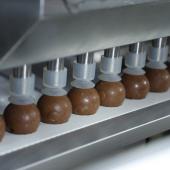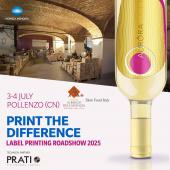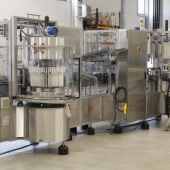The secret of growing (a lot and well)
Rooted in the heartland of Bologna’s packaging valley, Marchesini Group has long since ventured onto the global market with state-of-the-art processing and packaging solutions in the pharmaceutical, cosmetics and food product field. Stefano Lavorini
Lately it has implemented a policy of buy-ups and partnerships, that is leading the group to further extend and specialise its offer in terms of technology, markets and production. A process that, aiming at valorising and making the most out of the wealth of expertise, technology and manpower of the companies purchased, works as a considerable growth accelerator. Hence what is their secret? The reflections of Pietro Cassani, group CEO, gathered at their stand set up at the recent Ipack-Ima, might highlight an “Italian style” in this field as well. And for once, we spoke of men and not machines.
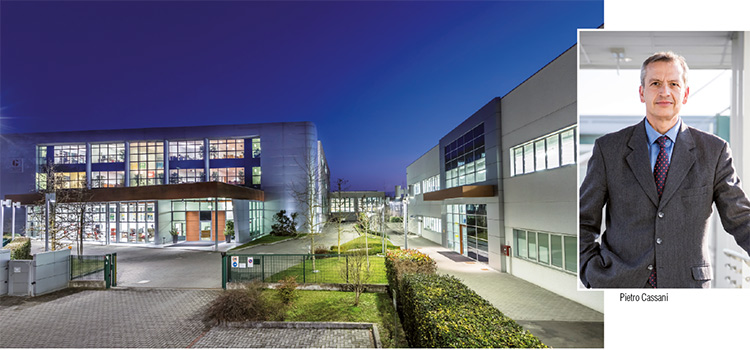
Stefano Lavorini
The lead thread, that ties together the events that have marked the history of the Marchesini group over these last few years - the buy-up of Schmucker, SEA Vision, Vibrotech and Dumek, to the inauguration of the Thermoforming Hub at Carpi - seem to aim at a precise goal: build the future without shedding or discarding knowhow and expertise. Where to now having achieved all this?
We want to grow, because as I always say companies are like the moon: they cannot stay at a standstill, they either wax or wane. And hence, since we don’t want to “wane”, with German and Chinese competitors on our heels, we are compelled to grow quickly at the rhythms imposed by the global world. Our path towards growth is via internal means, but also via an effective strategy of buy-ups: the combination of these two factors is decisive.
l What is the optimum size threshold on the global market?
Let’s say that some important synergies are triggered also thanks to size. The most significant opportunities come along when a company reaches or exceeds a billion in turnover, because, clearly, this enables you to wield a greater weight in terms of customers and suppliers, as well as anticipate innovatory trends and take part bye playing a leading role in the international scenario of buy-ups… As occurs in national state politics, even if in the world of enterprise the best opportunities arise out of the network and via relations, from the capacity to influence and not be influenced. Hence our objective is to grow and to continue to grow.
But for sure, I think that the best strategy is not to create a sole, gigantic concern, because it would be highly complex to run. Often, indeed, when you get beyond a certain size - the physiological “threshold” is generally a workforce of a thousand - you risk getting tangled up in the web of bureaucracy, becoming inefficient, sustaining pockets of unproductiveness. What works though is harbouring the synergic contribution of many companies within one group, so that they are governed, presided over, yet that they preserve a good level of independence and entrepreneurial autonomy, conducive to passion, motivation, creativity and dynamism…
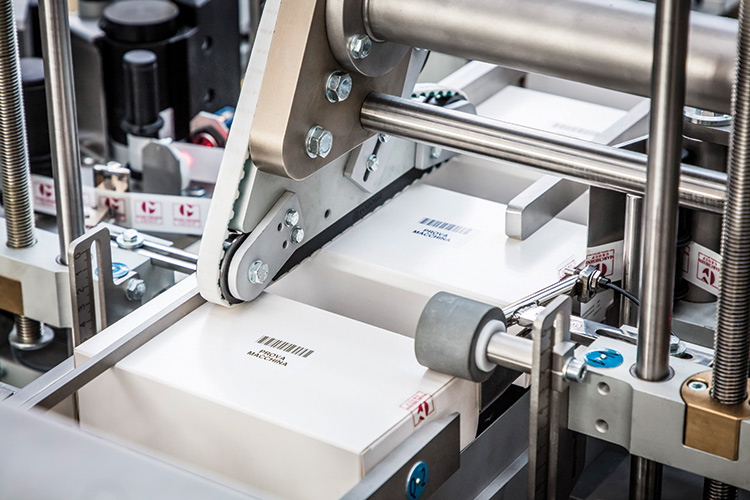
That is to say… buying a company is easy, running it and valorising its wealth of expertise and experience is a lot harder.
Some groups have fallen into the error of implementing purely financially based purchasing models, with forceful policies of integration that only consider the numbers and not the contribution of the people involved.
It is highly important to gain a deep understanding of the characteristics of a manufacturing concern, valorising and making the most out the the expertise of those who work there: something that demands time, attention and hard work, but that allows one to provide an enterprise with real prospects.
For a company with the right expertise, its purchase by a leading group like Marchesini means being able to enjoy important benefits in terms of organization, promotion and visibility, as well as being able to count on the support of an extensive commercial network. In this case the purchase is a catalyser that accelerates growth.
And the results show it. We adopted this approach with Dumek, a “highly” Bolognese concern, small in size but with an important history and a technological culture that has made it a landmark in the field of cosmetics sector processing machines (turboemulsifiers and fusers). Our contribution, as Marchesini Group, has been mostly that of providing more evolved instruments for management control, as well as new commercial opportunities, without dismantling the consolidated network of suppliers and expertise built up by the company over the years.
At any rate, like in cuisine, there is no such thing as one single recipe…
When you buy a company to relaunch its products, the brand and its expertise, you need to combine integration with a good level of autonomy; the right balance obviously depends on the context, the people, the situation of the main markets. Experience though teaches that incorporating a concern without valorising and making the most of its human capital, is equivalent to destroying its value, because stimuli and enthusiasm are stifled.
Recently, with the purchase of SEA Vision, you also entered into the world of software: is your goal to explore its potential in new sectors?
Software in particular is a market projected towards the future, that offers us new opportunities in areas of application, in line with our traditional target market. What is more, digitalization is revolutionizing the entire industrial landscape, and is a fundamental know-how, first and foremost in the applications for traceability and serialization of pharmaceuticals. But we see excellent prospects for software applications in other areas - food or cosmetics for example - where, even though legal obligations are less binding than with pharmaceuticals, digital tracking systems guarantee the authenticity of the products, their non-counterfeiting, their quality, and the “made in” aspect.
Indeed Marchesini is facing a great challenge in looking beyond its historical vocation anchored to mechanical engineering - according to the Bolognese tradition - in order to seize new opportunities...
Although the expansion of the technological offer and the outlet markets go hand in hand, this does not mean that mechanical engineering and kinematic skills take second place: indeed, they continue to be Marchesini’s core business. But even in the world of industrial automation, which requires maximum reactivity in capturing new trends, software has acquired an increasingly important weight. This is why we are exploring the potential of artificial intelligence, self-learning and vision, to be used on our packaging machines. And this is also why we continue to focus on human resources, through the inclusion of new qualified professional figures, investing in them with ongoing, specially suited internal training.
As an example I cite that we recently created a prototyping plant with 3D printers for metal and plastic, with laser cutting and sheet metal forming machines. The project has achieved a twin objective: in addition to speeding up the construction of in-house prototypes, it allows us to update our technicians on new design standards and, consequently, on the most modern production technologies.

Here might you not also implement training sessions for your subcontractors?
Indeed this is something we have already done, inviting them to the new facilities to show them that there is a real opportunity of realising projects according to logics completely different from the past. We also want them to also become acquainted with and follow these evolutions, in order not to find ourselves forced to take supplementary measures.
The objective, hence, is that of a coherent and extended development, which involves not only the company but also the supplier industry and the entire territory, to which Marchesini has always paid the utmost attention.
And this is a challenge that not only involves us, but the entire Bologna packaging system, given that - and it is a well known fact - many companies “share” suppliers. And still within a view of the supply chain, we firmly corroborate a thesis put forward by Confindustria and reiterated on various occasions by Maurizio Marchesini himself: the subcontractor of a healthy, export-oriented company must obtain a creditworthiness comparable to that of its customer, since the former in actual fact constitutes a sort of extension of the latter.
Hence skills and expertise are evermore a resource that needs to be preserved and fostered to enable growth...
Certainly so. And it is a principle of attention that we also apply internally to safeguard our history and our culture. This is the starting point for the recent project concerning Rinova, a Group reality founded at the beginning of 2018, which deals with repairing, reconditioning and selling used machines. In fact, we realized that for Marchesini, producer of high quality and long-lasting packaging systems, the management of used machines could represent a business opportunity; there is indeed a significant range of users who, in not choosing a cheaper alternative and a lower technological level (perhaps Chinese), prefer a used and guaranteed top Italian brand machine.
Rinova... innovates in this market, because it is independent, it has its own works, although not far from our Pianoro headquarters, and because it carries out a parallel and complementary activity, with working methods obviously different to those followed in the construction of new machines.
I suppose that, in this case, people capable of governing the “old” mechanical engineering are needed. An expertise that is becoming increasingly difficult to find, given the preponderance of mechatronics you might say…
That’s right. And in fact it is no coincidence that in Rinova, we pair off younger human resources with those whom we call the “historical memory” of the company. Working side by side with expert operators on projects in which mechanics still has a part to play, is an important and decisive on-the-job training experience, which allows people to acquire a wealth of fundamental skills, which might prepare them for their subsequent entry into Marchesini.
Marchesini, in short, becomes the champion of an intelligent “Italian way” of growth. Moreover, it should be remembered that you never succumbed to the collective delusion, which has led many companies to move production to China.
We are proud of having resisted the temptation, and it was no mean thing, because China has been seen by many as the promised land.
Indeed the phenomenon has caused serious damage to European companies. Chinese suppliers have actually learned how to produce some components with “made in EU” quality tolerance specifications, and have thus become dangerous competitors.
But now that labor costs have grown there as well, transferring production to China is no longer really economically viable, as shown by the ongoing re-industrialization process underway. Indeed, only considering one’s immediate advantage can be dangerous, when you lose a more extensive view of things.














